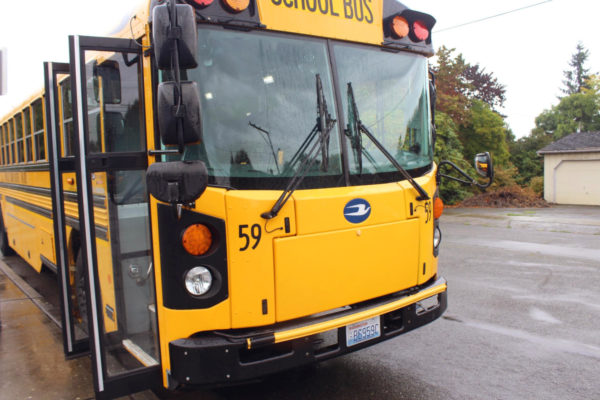Rules influence store profits
New USDA regulations regarding the nutritional value of the food and beverages served at schools took effect in August. The regulations called for changes within the student store and the espresso bar.
DECA adviser Kim Root expands on the new items that meet the new regulations.
“Most of our drinks are now sugar free or a fruit drink. All of our chips are either baked or reduced fat and we only have one candy we can sell—a sour gummy worm. We can sell it because it is high in fiber,” Root said. “[The previous items] have been removed with the exception of [still] being [allowed] to sell t-shirts, clothes and water. We had to change everything [else].”
Root finds that certain products are more favored to be sold over others.
“The top-selling items in the espresso bar are spritzers, which are 7-Up and flavored syrups. [They are] all sugar free. We sell a lot of fruit smoothies, which are a V8 base so it has fruits and vegetables. It has taken us until the month of February to find a 9-grain bagel that meets compliance,” Root said. “In our student store, the majority of our sales are from water and the zero-calorie Arnold Palmer iced teas.”
As Root states, students are now coming to school with food and beverages purchased from different outlets. The espresso bar, while still conforming to guidelines, still provides coffee drinks.
“We have hot coffee, iced coffee, iced mochas and lattes using non-fat milk and sugar-free syrups. We cannot do hot mochas or lattes, not because of the regulations but we do not have an espresso machine. It is really expensive and in the past, if we wanted to buy one, we would have made enough money to purchase one,” Root said. “We usually buy all of our equipment, all of our supplies and all of our product. We just cannot afford to buy an espresso machine but we make enough money to cover all of our bills.”
Junior and DECA student Brandon Bullard offers some insights on the topic of health regulations and how they affect the attitude of students.
“The students have been reacting poorly to the changes. They do not really like them because they like what was served last year. Students like the freedom of choice,” Bullard said.
The student store and espresso bar have not been selling as much product as before. As Bullard states, the store helps provide the funds for going to DECA conferences. Students in the past did not have to pay for the fees that come with going to state because of the profits from the two stores combined. Now, the students competing at state are being charged $100 to attend.
Root elaborates on the effects of the lack of sales this year due to the regulations.
“The problem we are going to have is [paying for DECA events]. The store and the espresso bar is DECA’s fundraiser. We earn our own money to pay for conferences and competitions without having to charge students tons of money. It may be really expensive for DECA students next year. The store and espresso bar is also their learning laboratory, where they learn their business skills,” Root said.
Along with the new guidelines, DECA students also come into contact with compromising the new payment systems offered.
“Another issue we have been having is that a lot of students buy lunch. [Those students’] parents load the money on the EZSchoolPay app so students just go and plug in their student ID. A lot of students do not carry money. We are in the process of seeing if we can set up an EZSchoolPay account so parents can put money in for either the espresso bar or the student store,” Root said. “This has been another huge hurdle besides the nutrition.”
As money becomes an issue to the student store and espresso bar, Root clarifies the reasoning behind leaving the prices the same.
“You have to figure out how much you can sell it for and still have costumers buy. If [the products] are too expensive and do not taste as good as it did last year, then they are not going to buy. Last year students could buy Pop-Tarts and you would have two Pop-Tarts in a container. Now there are only one, because the whole-grain products are more expensive. It costs the same to get one Pop-Tart as it did for two,” Root said. “Our prices are cheaper than the vending machines, so students can save money getting stuff from us. The gummy worms are $1.75 in the vending machine. We sell them for $1 [and] we are open half an hour during lunches.”





